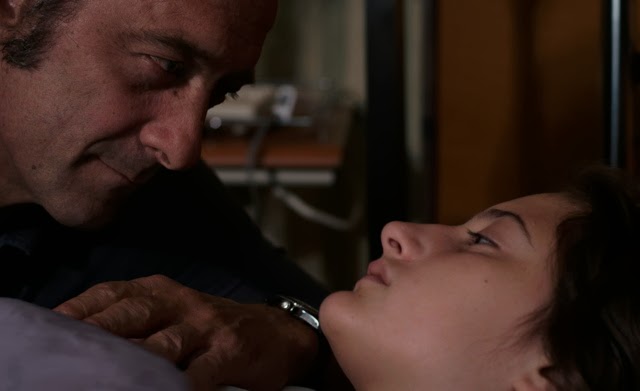Starting in confusion and ending in despair, Bastards is about as unrelenting a film as anyone could expect to see. What makes it watchable, even brilliant, is the economy of Claire Denis’ style. Denis has been making films for long enough that restraint is her second nature. For a narrative this disturbing, it’s the right approach.
After the suicide of his brother-in-law, Marco (Vincent Lindon) returns to France to find his sister (Julie Bataille) entangled in some pretty nasty business, when he learns the price they’ve been willing to pay the wealthy Laporte (Michel Subor) for bailing out their shoe company. Taking a flat opposite Laporte, he has an affair with his wife (Chiara Mastroianni), discovers some bloody corn-cobs, and tries to rescue his troubled niece (Lola Créton).
Denis’ reserved camerawork and her penchant for flashing backwards and forwards leaves the heavy lifting to the audience. Luckily, Linden and Mastroianni are magnetic enough to carry the more obscure stretches of the plot, their downcast faces lined with weariness and failure. They represent the most convincing ‘mature’ couple in cinema since…well, perhaps Bogart and Bergman. Maybe they’re not quite in that league, but certainly they’re an oasis of cool sophistication in a film that ultimately embraces total squalor.
It embraces it with an ending that amounts to the most audacious and troubling of Denis’ career. Calling a film ‘Bastards’ is a bold statement on her part, but to reveal the full implications of that title in the very last minute is bolder still. If she’s not convinced you that less really is more by the time the credits roll, then you need to watch the film again from the start. And once you have, you probably won’t want any sweetcorn for a while.
